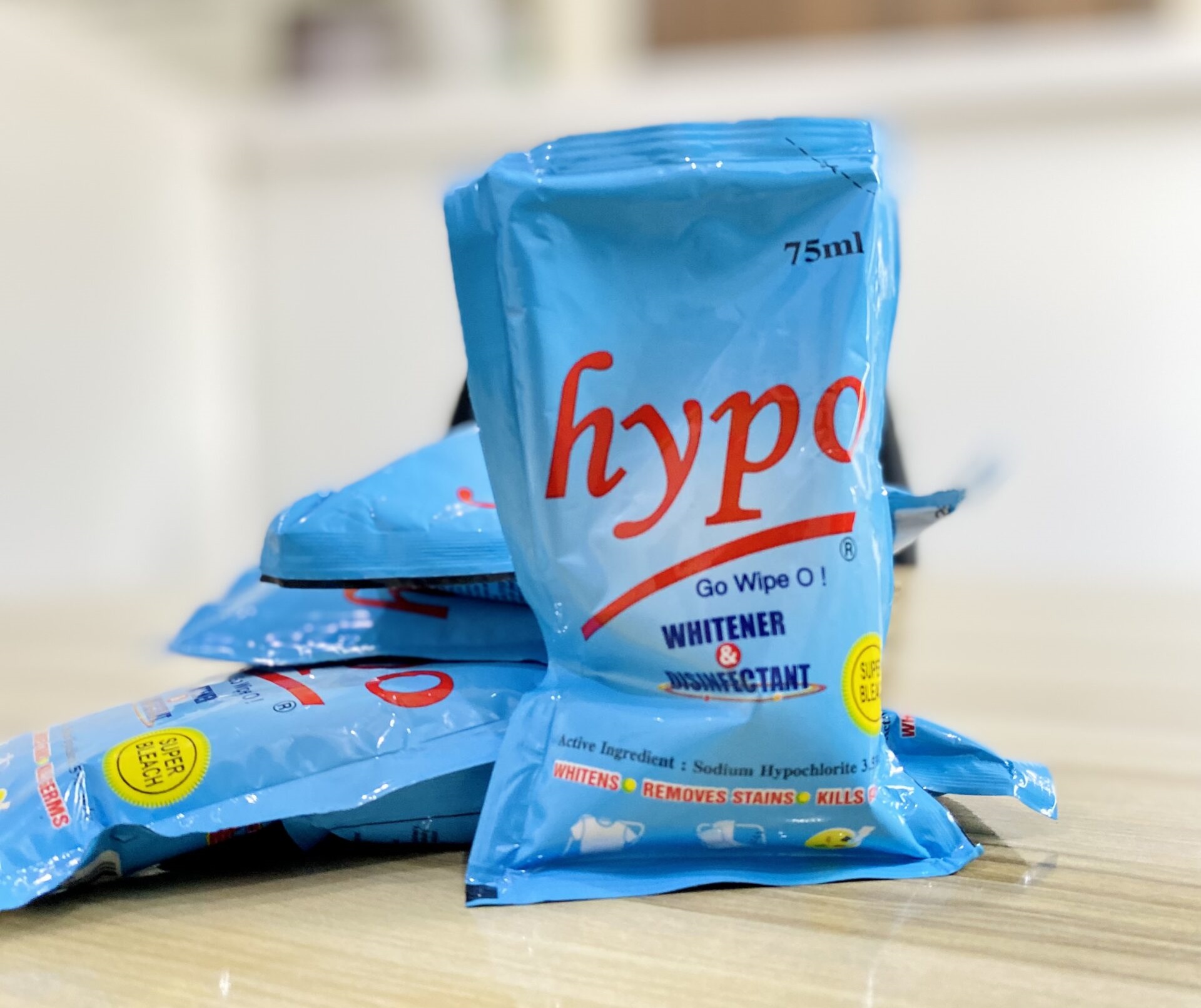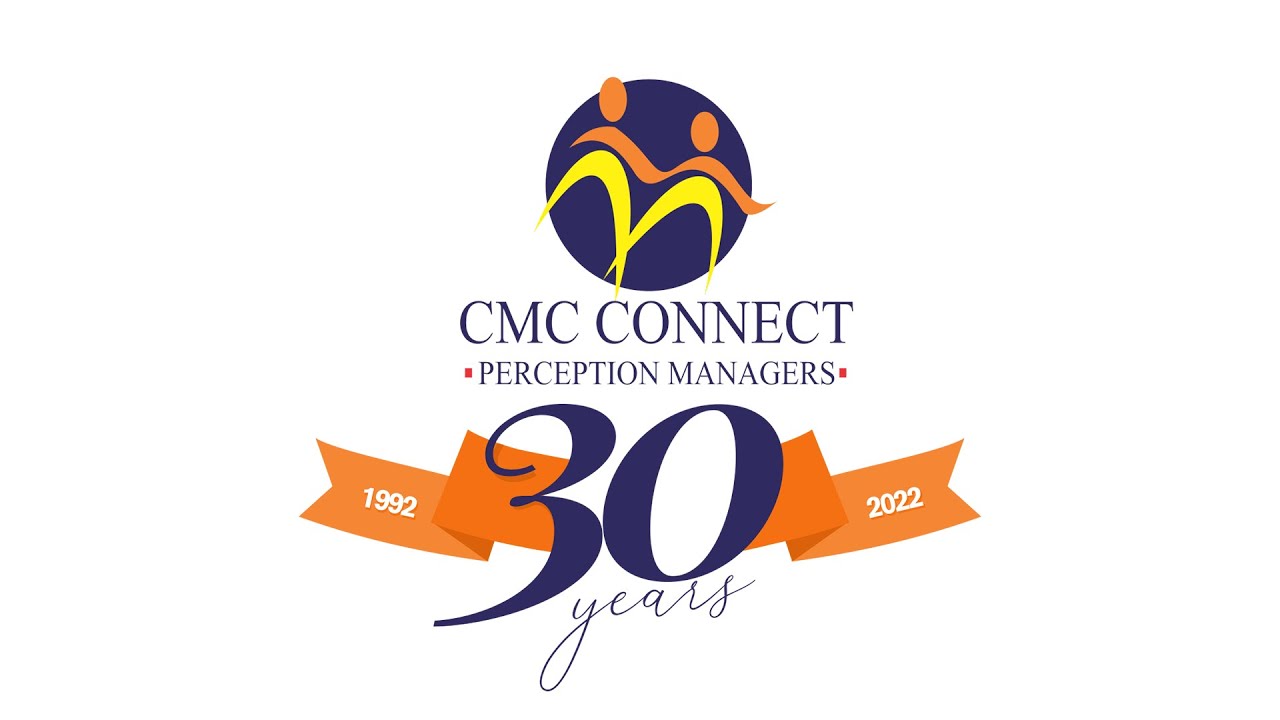Brands/Products
SONA Group: Contributing To Healthy Environment in Nigeria through Recycling

Plastic waste pollution in Nigeria has proven to be one of the most inimical threats to environmental health in the country, with dire consequences such as outbreaks of communicable diseases, loss of lives and properties and continuous environmental degradation.
Indiscriminate dumping of waste is a major contributing factor to the environmental disasters recorded annually as citizens, especially inhabitants of metropolitan areas in the country discard most of their waste, including plastic bags and bottles illegally in drainages and canals.
This in turn congests the channels, hindering the free flow of water whenever it rains and ultimately leads to flood.
In an attempt to reduce the undesirable effects, many citizens resort to burning their plastic waste, which also triggers numerous health and environmental risks as a result of air pollution.
Recycling has been globally identified as the most effective solution to the problem of plastic waste pollution. In order to curtail plastic waste pollution, the Nigerian government has announced plans to introduce policies on plastic waste management, as well as strategies to implement waste recycling programs, encouraging recycling culture in the country.
However, only a handful of companies are currently recycling plastic waste to significantly abate environmental hazard and promote public health in Nigeria. One of such companies is SONA Group of Industries.
Established over 30 years ago, SONA Group is a foremost conglomerate in Nigeria with up to 10 subsidiaries, cutting across diverse sectors and making significant investments in each.
Since inception, the company has provided world-class quality products to elevate the standards of living in the country.
One of SONA’s subsidiaries, Shongai Packaging Industries Ltd, is a major player in plastic packaging manufacturing in the country; producing several domestic and industrial products including injection moulded plastic furniture, storage crates, basins and buckets, rugged crates for beer & beverage, cosmetic jars, plastic pallets, among others.
Owing to the company’s extensive range of plastic products and the desire to facilitate a healthy environment in Nigeria, it actively engages in plastics recycling.
The plastic wastes are processed into raw materials, which are then used to manufacture various plastic products.
Currently, Shongai Packaging owns five recycling plants, with four being fully functional while the fifth is being completed.
SONA Group’s Chairman A.K Mirchandani has revealed that one of the pivotal reasons for the company’s investment in multiple recycling plants is to enable the efficacious eradication of plastic waste pollution in Nigeria.
According to him, “A clean and safe environment for the citizens should be the priority of every manufacturing company in the country.
“Our goal is to promote public health through our recycling, hence the construction of more plants. Our recycling goes beyond production as we see it as an avenue to add considerable value to Nigeria as a nation.”
Mr Mirchandani wished more companies could espouse and engage in recycling as much as SONA Group does, as it will undoubtedly diminish environmental degradation and precipitate the growth of Nigeria’s industrialization.
Shongai Packaging Industry Ltd began recycling about 10 years ago, with only 200 tons of plastic being recycled. Presently, over 20, 000 tons of plastics are recycled in the plants annually, with cutting-edge European technology being used by the company for the recycling process.
About 85 percent of the materials used in manufacturing Shongai’s products are derived from recycling, which is a contributing factor to SONA Group’s adulated eco-friendly production processes over the years.
With waste recycling still being relatively unexplored in Nigeria, if more companies actively engage in recycling like Shongai Packaging Industries, plastic waste pollution which has now become one of the major scourges of environmental degradation in the country will be effectively controlled, promoting public health and reducing monumental loss caused by the pollution considerably.
Besides public health, other ways Nigeria as a nation could benefit from recycling include energy conservation, economic growth, conservation of natural resources, reduction of landfill waste, and several more.
Brands/Products
Hypo Bleach Not for Drinking, But to Whiten Your White Fabric—Marketing Manager

By Modupe Gbadeyanka
The Marketing Manager of a leading bleach brand in Nigeria, Hypo Bleach, Mr Adebayo Adeyemo, has condemned the presentation of the brand as a beverage for trends, jokes, or views by influencers and bloggers.
In a statement, Mr Adeyemo said Hypo Bleach was formulated to “remove stains, whiten your white fabric, deodorise and kill 99.9 per cent of germs” and not produced as a “drink.”
“We have observed people seeming to have fun creating and sharing videos and AI-generated images designed to make Hypo look like a beverage.
“Your health and safety are serious business. We want to be unambiguous: those images are fabricated, that framing is false, and anyone encouraging others to consume Hypo, even as a joke, even for views, is putting lives at risk. It is not something to consume for the sake of trends,” the Marketing Manager stated.
He further said, “To every influencer, blogger, and content creator. Your reach is real; so is your responsibility. A trend that ends in ill-health is not a trend worth starting.”
“To every young Nigerian seeing this content, you do not have to prove anything to anyone. Not online. Not offline. Not ever. If someone is pressuring you to try this, that is not a dare. That is harm.
|If you or someone you know is struggling emotionally or feeling pressure they cannot handle, please reach out to someone you trust.
A guardian. A counsellor. A healthcare professional. Asking for help is not a weakness; it is a strength.
“Also, we urge people to prioritise their mental health. Evaluate the quality of your conversations with people. Should you notice inconsistencies in their thinking, encourage them to seek professional help. Depression is real and should be treated with utmost concern. Let’s keep social media fun, but safe,” Mr Adeyemo added.
Brands/Products
CMC Connect Plans Conference on AI in Reputational Risk Management

By Dipo Olowookere
A conference designed to examine how Artificial Intelligence (AI) is fundamentally reshaping crisis communication, institutional response systems, governance frameworks, and reputational risk management is slated to take place on Wednesday, March 25, 2026, in Lagos, at 10 am.
The event, planned by a renowned Public Relations (PR) firm, CMC Connect LLP, is themed Crisis Management in the AI Milieu: New Threats, Smarter Responses.
It is an offshoot of the company’s flagship industry initiative, Crisis Management Advocacy Month, scheduled to be held throughout March 2026.
The Minister of Communications, Innovation and Digital Economy, Mr Bosun Tijani, is expected to deliver the keynote address, while the Minister of Information and National Orientation, Mr Mohammed Idris Malagi, is the Special Guest of Honour.
Earlier in the month, the Vice President for Corporate Communications and CSR at Airtel Africa, Mr Emeka Oparah, will headline a closed-door media workshop convened exclusively for senior media executives in Lagos.
The 2026 edition will also feature strategic collaborations with the Nigerian Institute of Public Relations (NIPR) through its Monthly PR Clinics in both the Lagos and Abuja Chapters, where the Senior Corporate Communications Analyst at CMC Connect LLP, Ms Affiong Edet, will deliver a thematic presentation aligned with this year’s focus.
The initiative will also partner with the Nigerian Bar Association Section on Legal Practice through its weekly webinar series to interrogate the intersection of AI, Crisis Management, and the Law.
“Artificial Intelligence has fundamentally altered the crisis landscape. Crisis Management Advocacy Month 2026 is intentionally designed to convene cross-sector leaders to interrogate emerging risks, strengthen institutional preparedness, and promote smarter, ethical response architectures in an AI-driven environment,” the Project Coordinator, Ms Bright Emmanuel Okon, commented.
Also, the Lead Partner of CMC Connect LLP, Mr Yomi Badejo-Okunsanya, said, “In today’s digital ecosystem, crises evolve at unprecedented speed. Institutions must move beyond reactive communication toward intelligent crisis architecture. Crisis Management Advocacy Month represents our commitment to advancing national and institutional resilience in the age of AI.”
Brands/Products
Hair Loss Treatments for Thicker, Fuller, Healthy Hair

Hair loss treatments for thicker, fuller, healthy hair are sought by millions who want to restore confidence and improve hair density. Whether thinning stems from genetics, stress, nutrition, or styling damage, a layered approach, combining medical therapies, topical products, lifestyle changes, and smart styling, typically delivers the best results. Happy Head products demonstrate how combining effective formulations with evidence-based routines can support measurable improvements. This guide walks through the common causes of hair thinning, evidence-based medical options, over-the-counter products that actually help, nutritional strategies, and practical haircare routines. It’s written to help a busy professional quickly separate hype from high-value actions and choose the right path forward.
Understanding Hair Thinning And Its Causes
Common Patterns And Medical Causes
Recognizing the pattern of hair loss is the first diagnostic step. Male-pattern and female-pattern hair loss (androgenetic alopecia) produce predictable thinning, receding hairlines and vertex thinning in men: diffuse crown thinning in women. Other medical causes include autoimmune conditions like alopecia areata, thyroid dysfunction, scalp infections, and medication side effects. A clinician will look for family history, onset speed, and signs such as scalp inflammation or scarring.
Telogen Effluvium, Nutritional Deficiencies, And Styling Damage
Telogen effluvium is a common reversible cause where more hairs enter the resting (telogen) phase after triggers like severe illness, childbirth, surgery, or abrupt dieting. Nutritional deficits, iron deficiency, low vitamin D, inadequate protein, or zinc shortfalls, can shrink hair shafts and slow growth. Finally, mechanical and chemical damage (tight hairstyles, frequent bleaching, thermal overuse) weakens hair and increases breakage, creating the appearance of thinning even when follicles remain viable.
Understanding the root cause matters because treatments differ: hormone-modulating therapies for androgenetic alopecia, nutrient repletion for deficiency, and habit changes for styling damage. A targeted approach avoids wasting time and money on mismatched solutions.
Clinically Proven Medical Treatments
Topical Minoxidil: Usage, Strengths, And Expectations
Topical minoxidil is the most accessible, evidence-backed treatment for many forms of thinning. Available in 2% and 5% formulations (and foams and solutions), it lengthens the anagen (growth) phase and can thicken miniaturized follicles. Users should expect 3–6 months before visible change and up to a year for maximum effect. Side effects are usually mild, scalp irritation or unwanted facial hair in rare cases. Importantly, stopping minoxidil typically leads to return to baseline within months.
Oral Medications And Hormone Therapies
Finasteride and dutasteride inhibit DHT and are effective for male-pattern hair loss: they require prescription and monitoring for side effects. In women, oral anti-androgens (spironolactone, cyproterone acetate where available) and combined oral contraceptives can help when androgens drive thinning. Thyroid replacement and treating systemic conditions also restore hair when an underlying disease is identified.
Low-Level Laser Therapy And Platelet-Rich Plasma (PRP)
Low-level laser therapy (LLLT) devices, helmets and combs, stimulate cellular activity and have modest but consistent evidence for increasing hair density when used regularly. PRP, an in-office procedure where a patient’s concentrated platelets are injected into the scalp, shows promising results in controlled studies, often used alongside minoxidil or finasteride. Both options are adjunctive, not miracle cures.
Hair Transplant Surgery: Who It’s For And What To Expect
Follicular unit extraction (FUE) and follicular unit transplantation (FUT) relocate robust donor follicles to thinning areas. Transplants are best for stable, patterned hair loss with adequate donor supply. Expect a multi-stage process: consultation, harvesting, implantation, and months of regrowth. Results are permanent for transplanted follicles, but continued treatment may be needed to protect native hair. Cost, recovery, and surgeon skill are critical variables, select a board-certified specialist with a strong portfolio.
Nonprescription Products That Can Improve Volume
Thickening Shampoos, Conditioners, And Scalp Serums
Volumizing shampoos and conditioners add temporary body by coating hair shafts and lifting roots. Look for sulfate-free formulas if the scalp is sensitive. Scalp serums aimed at improving scalp health, hydration, barrier repair, and mild exfoliation, can create a better environment for hair growth when used consistently.
Peptides, Botanicals, And Other Active Ingredients To Look For
Topical products that include peptides, caffeine, saw palmetto extract, and nicotinamide have varying levels of supportive evidence. Peptides may signal follicles to strengthen, while botanical DHT inhibitors like saw palmetto show modest benefit in some studies. Ingredients such as niacinamide, panthenol, and hyaluronic acid support hair appearance and scalp moisture: they’re low-risk and can complement proven medical therapies.
Cosmetic Solutions: Concealers, Fibers, And Styling Sprays
For immediate visual impact, cosmetic tools are effective: colored fibers adhere to hairs and scalp, scalp-concealing powders mask contrast, and root-lifting sprays boost volume. These are ideal when results are needed quickly (product launches, client meetings) and are a low-cost bridge while medical treatments take effect.
Lifestyle, Nutrition, And Supplements For Stronger Hair
Dietary Patterns And Key Nutrients (Protein, Iron, Zinc, Biotin, Vitamin D)
A balanced diet supports hair growth. Hair is protein-rich, so adequate dietary protein is foundational. Iron deficiency is a common, reversible contributor to shedding, ferritin testing is useful. Zinc supports keratin structure: severe deficiency impairs growth. Biotin deficiency is rare, but biotin supplementation helps certain metabolic disorders. Vitamin D receptors influence follicle cycling: correcting deficiencies can aid regrowth.
Supplements With Evidence Versus Hype
Marine collagen, multivitamins, and targeted hair formulas often contain useful cofactors (iron, zinc, B-complex). Clinical benefit varies, iron for depleted patients and vitamin D for deficient individuals have the strongest rationale. Over-the-counter mega-doses or single-ingredient miracles are mostly unsupported. A healthcare provider should guide supplementation, especially where interactions or underlying conditions exist.
Stress Management, Sleep, And Scalp Health Practices
Chronic stress and poor sleep exacerbate telogen effluvium. Practices such as regular exercise, mindfulness, and sleep hygiene reduce cortisol spikes that can disrupt hair cycles. Scalp care, regular cleansing to prevent follicular buildup, avoiding harsh abrasives, and addressing dandruff or dermatitis, maintains a hospitable environment for follicles.
Practical Haircare Routine And Styling Tips To Maximize Fullness
Washing, Drying, And Gentle Handling Techniques
Wash frequency should match scalp oiliness: over-washing strips the hair of protective oils while under-washing can cause buildup and weight. Use lukewarm water, gentle sulfate-free cleansers, and a silicone-light conditioner applied mid-shaft to ends. Pat dry and detangle with a wide-tooth comb when damp to minimize breakage.
Heat, Chemical Treatments, And Protective Styling Choices
Limit high-heat styling and reduce chemical services (bleaching, aggressive relaxers) that permanently weaken cortex structure. When heat is used, apply a heat protectant and choose lower temperature settings. Favor loose protective styles over tight ponytails or braids that produce traction alopecia.
Cuts, Color, And Styling Tricks That Create The Illusion Of Volume
A layered haircut, textured ends, and root-lifting cuts create visual density. Strategic color, subtle highlights, adds dimension and reduces scalp contrast, making hair appear fuller. Styling techniques like blow-drying roots upward, using lightweight mousse, and finishing with a texturizing spray can amplify volume without heavy residue.
How To Choose The Right Treatment Plan And When To See A Specialist
Setting Realistic Timelines, Tracking Progress, And Combining Therapies
Effective plans set realistic expectations: initial improvements generally appear after 3–6 months: meaningful density gains can take 9–12 months. Combining topical minoxidil with an oral agent (when appropriate), LLLT, targeted supplements, and improved haircare delivers better outcomes than any single intervention. Track progress with photos, vertex measurements, and symptom logs to evaluate efficacy objectively.
Questions To Ask A Dermatologist Or Hair Restoration Specialist
Prepare focused questions: What is the likely diagnosis and its cause? Which treatments are evidence-based for this pattern? What are potential side effects and costs? Will continued therapy be necessary to maintain results? Ask about credentials, before-and-after photos, and alternative options. For clinics offering surgical solutions, verify board certification and patient testimonials.
For time-pressed professionals in SEO and business, delegating routine monitoring, using periodic telemedicine check-ins or a trusted clinician, keeps treatment on track without disrupting work priorities.
Conclusion
Treating thinning hair for thicker, fuller, healthy hair is rarely a one-step fix. A pragmatic strategy starts with identifying the cause, adopting evidence-based medical treatments where appropriate, supporting follicle health with targeted products and nutrition, and applying styling techniques that maximize visible volume. Busy professionals should prioritize high-impact, low-friction interventions, like starting topical minoxidil, correcting nutrient deficits, and switching to gentler styling, to see measurable progress within months. When uncertainty remains or hair loss progresses, timely consultation with a dermatologist or hair restoration specialist ensures the chosen path is safe, effective, and tailored to the individual’s lifestyle and goals.
-

 Feature/OPED6 years ago
Feature/OPED6 years agoDavos was Different this year
-
Travel/Tourism10 years ago
Lagos Seals Western Lodge Hotel In Ikorodu
-

 Showbiz3 years ago
Showbiz3 years agoEstranged Lover Releases Videos of Empress Njamah Bathing
-

 Banking8 years ago
Banking8 years agoSort Codes of GTBank Branches in Nigeria
-

 Economy3 years ago
Economy3 years agoSubsidy Removal: CNG at N130 Per Litre Cheaper Than Petrol—IPMAN
-

 Banking3 years ago
Banking3 years agoSort Codes of UBA Branches in Nigeria
-

 Banking3 years ago
Banking3 years agoFirst Bank Announces Planned Downtime
-

 Sports3 years ago
Sports3 years agoHighest Paid Nigerian Footballer – How Much Do Nigerian Footballers Earn












